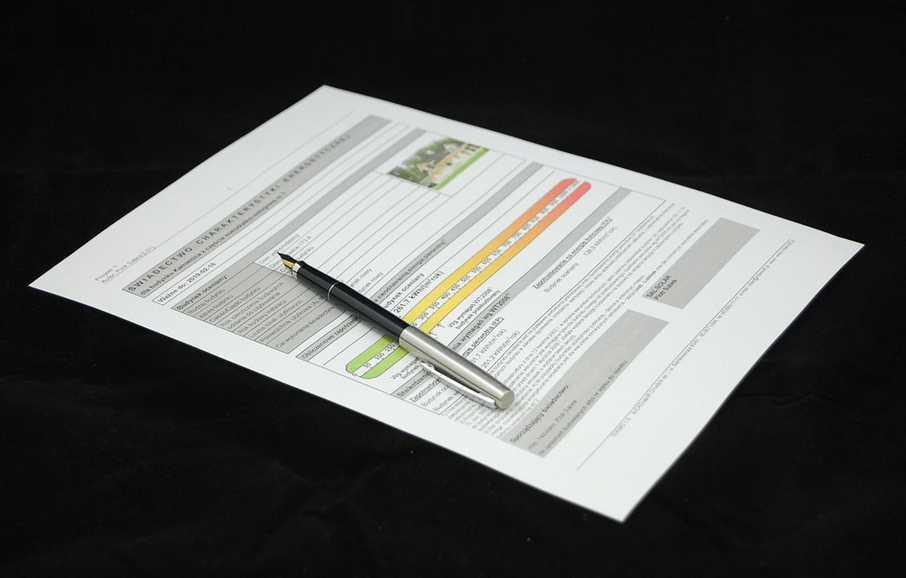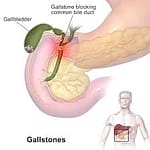Winning the War on Obesity: Proven Strategies for Sustainable Weight Loss

In a world where quick fixes and fad diets reign supreme, the battle against obesity can feel like an uphill struggle. Yet, what if we told you that sustainable weight loss isn’t just a distant dream but an achievable reality? Welcome to our comprehensive guide on “Winning the War on Obesity,” where we unveil proven strategies designed not only to shed those stubborn pounds but also to cultivate healthy habits for life. Say goodbye to temporary solutions and hello to lasting transformation. Join us as we explore practical tips, inspiring success stories, and expert insights that will empower you on your journey toward vibrant health and well-being.
Understand the Role of Weight Loss Supplements
In the search for effective weight loss strategies, weight loss supplements are often touted as a quick fix. However, it’s crucial to approach supplements with caution. While some products may offer modest benefits, they should never replace a healthy, balanced diet or regular exercise. Common weight loss supplements include appetite suppressants, fat burners, and metabolism boosters. These products can sometimes help individuals jumpstart their weight loss journey, especially when combined with proper diet and exercise, but they are not a magic bullet.
For instance, green tea extract and caffeine are often found in fat-burning supplements, as they can slightly increase metabolism and promote fat oxidation. Similarly, fiber supplements can help reduce appetite by promoting a feeling of fullness. Click Here if you are searching for effective weight loss supplements.
Focus on Sustainable Diet Changes

The cornerstone of any successful weight loss strategy is a balanced and nutritious diet. Restrictive diets or extreme caloric cuts are rarely effective in the long run and can often result in nutrient deficiencies or yo-yo dieting. Instead, focus on sustainable changes that promote gradual weight loss. A balanced diet should include a variety of nutrient-dense foods. Place a strong emphasis on entire grains, lean meats, fruits, veggies, and healthy fats. By maintaining blood sugar levels and promoting feelings of fullness for longer, a diet high in fiber can also aid in weight loss.
Limiting processed foods, sugary beverages, and high-calorie snacks will go a long way in reducing overall calorie intake. Remember that portion control plays a crucial role. Eating mindfully and avoiding overeating by listening to your body’s hunger cues can make a significant difference in your weight loss efforts. It’s important to think of food as fuel and make choices that nourish your body rather than simply satisfying cravings.
Incorporate Regular Physical Activity
Exercise is an essential component of any weight loss program. It not only helps burn calories but also improves overall health by boosting metabolism, enhancing cardiovascular function, and strengthening muscles. The American Heart Association recommends 150 minutes of moderate-intensity aerobic exercise or 75 minutes of intense exercise, in addition to two or more days of muscle-strengthening activities.
A mix of cardiovascular exercises (such as walking, running, swimming, or cycling) and strength training (like weight lifting or bodyweight exercises) is ideal. Cardio helps to burn calories during the workout, while strength training increases muscle mass, which increases your resting metabolic rate and helps you burn more calories even when not exercising. For those who are new to exercise, it’s important to start gradually and build up intensity over time. Consistency is key—regular activity will lead to gradual improvements in both weight loss and overall fitness.
Address Emotional Eating and Stress

Obesity is often intertwined with emotional eating, where individuals use food to cope with stress, anxiety, or depression. This behavior can lead to overeating and the consumption of unhealthy foods that contribute to weight gain. Managing emotional eating is an essential aspect of successful weight loss. Emotional eating can be broken by practicing mindful eating. This focuses entirely on the eating experience, identifying hunger signals, eating mindfully, and enjoying every meal.
Developing non-food-related coping mechanisms for stress, such as meditation, yoga, or journaling, can reduce reliance on food for comfort. Seeking professional help, such as cognitive-behavioral therapy (CBT), can also be effective for addressing emotional eating patterns. A therapist can help identify triggers and offer strategies to manage emotional responses to food.
Get Adequate Sleep
Sleep is often overlooked in weight loss strategies, yet it plays a vital role in managing hunger hormones and metabolism. Lack of sleep disrupts the balance of leptin and ghrelin, hormones responsible for regulating appetite. Insufficient sleep can lead to increased hunger and cravings, particularly for high-calorie, sugary foods.
Try to get between seven and nine hours of good sleep each night. Sleep quality can be improved by creating a sleep-friendly environment in the bedroom, which includes keeping it cold, quiet, and dark. Avoiding caffeine and electronic devices before bed also supports restful sleep.…


 Another prevalent myth is that all weight loss supplements are created equal. In reality, the ingredients and formulations can vary widely. Banana Drops often contain a unique blend of natural ingredients to boost metabolism and reduce cravings. Researching and comparing products is essential, as some may contain fillers or ineffective components. Always read the label to understand what you’re putting into your body.
Another prevalent myth is that all weight loss supplements are created equal. In reality, the ingredients and formulations can vary widely. Banana Drops often contain a unique blend of natural ingredients to boost metabolism and reduce cravings. Researching and comparing products is essential, as some may contain fillers or ineffective components. Always read the label to understand what you’re putting into your body.




 Any exercises and techniques that are designed to enhance strength, flexibility, and overall function of the spine can do the job. Working with a skilled physical therapist can definitely help you finally regain mobility, ease the pain, and enhance your quality of life. Through tailored exercise programs, physical therapy aims to target specific areas affected by spinal degeneration. These exercises not only strengthen muscles but also promote better posture and alignment, easing strain on the spine.
Any exercises and techniques that are designed to enhance strength, flexibility, and overall function of the spine can do the job. Working with a skilled physical therapist can definitely help you finally regain mobility, ease the pain, and enhance your quality of life. Through tailored exercise programs, physical therapy aims to target specific areas affected by spinal degeneration. These exercises not only strengthen muscles but also promote better posture and alignment, easing strain on the spine. Living with spinal degeneration can be challenging, but it doesn’t have to define your life. By incorporating
Living with spinal degeneration can be challenging, but it doesn’t have to define your life. By incorporating 
 When you step onto the golf course, you’re not just working on your swing – you’re giving your body a full workout. Walking from hole to hole, carrying or pulling your clubs, and swinging with precision all contribute to physical exercise that targets various muscle groups. The act of walking an 18-hole course can cover several miles, providing cardiovascular benefits and burning calories along the way.
When you step onto the golf course, you’re not just working on your swing – you’re giving your body a full workout. Walking from hole to hole, carrying or pulling your clubs, and swinging with precision all contribute to physical exercise that targets various muscle groups. The act of walking an 18-hole course can cover several miles, providing cardiovascular benefits and burning calories along the way. Feeling overwhelmed by the daily hustle and bustle of life? Step onto the golf course for a refreshing round of stress relief. The serene environment, fresh air, and lush green surroundings create the perfect escape from your worries. As you swing your club and focus on hitting that perfect shot, all other thoughts fade away.
Feeling overwhelmed by the daily hustle and bustle of life? Step onto the golf course for a refreshing round of stress relief. The serene environment, fresh air, and lush green surroundings create the perfect escape from your worries. As you swing your club and focus on hitting that perfect shot, all other thoughts fade away. Imagine stepping onto the golf course on a beautiful sunny day, surrounded by lush greenery and fresh air. As you swing your club and feel the satisfaction of hitting that perfect shot, a sense of accomplishment washes over you. The act of playing golf can do wonders for your mood. Engaging in
Imagine stepping onto the golf course on a beautiful sunny day, surrounded by lush greenery and fresh air. As you swing your club and feel the satisfaction of hitting that perfect shot, a sense of accomplishment washes over you. The act of playing golf can do wonders for your mood. Engaging in 





 Engaging in physical games often involves activities that get your heart pumping and increase your heart rate. Whether it’s playing soccer, basketball, cycling, or even dancing, these games offer excellent cardiovascular exercise. Regular participation in physical games can enhance heart and lung function, improve circulation, and help lower the risk of heart disease.
Engaging in physical games often involves activities that get your heart pumping and increase your heart rate. Whether it’s playing soccer, basketball, cycling, or even dancing, these games offer excellent cardiovascular exercise. Regular participation in physical games can enhance heart and lung function, improve circulation, and help lower the risk of heart disease.




 As we age, maintaining core strength becomes increasingly important. A strong core allows for better stability and balance, significantly lowering the risk of falls and injuries. Golf is an excellent way to keep your core muscles in shape without engaging in high-intensity or strenuous workouts. Swinging a golf club involves rotation and movement of the trunk, hips, and shoulders – all key components of your core muscle group.
As we age, maintaining core strength becomes increasingly important. A strong core allows for better stability and balance, significantly lowering the risk of falls and injuries. Golf is an excellent way to keep your core muscles in shape without engaging in high-intensity or strenuous workouts. Swinging a golf club involves rotation and movement of the trunk, hips, and shoulders – all key components of your core muscle group.
 Playing golf can also benefit seniors by helping to sharpen their memory and prevent cognitive decline. Many mental skills are involved in playing a round of golf, such as strategy, focus, and problem-solving. These skills need the use of our brain’s executive function. By regularly engaging in this game, seniors can stimulate their minds and keep their brains sharp. Golfing provides an opportunity for seniors to learn new skills, movements, and strategies they need to remember each time they play. Furthermore, studies have shown that physical activity like golf can improve blood flow throughout the body, including the brain, which benefits memory recall ability.
Playing golf can also benefit seniors by helping to sharpen their memory and prevent cognitive decline. Many mental skills are involved in playing a round of golf, such as strategy, focus, and problem-solving. These skills need the use of our brain’s executive function. By regularly engaging in this game, seniors can stimulate their minds and keep their brains sharp. Golfing provides an opportunity for seniors to learn new skills, movements, and strategies they need to remember each time they play. Furthermore, studies have shown that physical activity like golf can improve blood flow throughout the body, including the brain, which benefits memory recall ability.


 One of the most significant benefits of dementia care is access to 24/7 professional support. Caring for your loved one with this condition is no easy feat, let alone unprofessional individuals, and it’s not always feasible to provide round-the-clock care at home. Dementia care facilities have trained staff who can handle every unique need of those living with dementia.
One of the most significant benefits of dementia care is access to 24/7 professional support. Caring for your loved one with this condition is no easy feat, let alone unprofessional individuals, and it’s not always feasible to provide round-the-clock care at home. Dementia care facilities have trained staff who can handle every unique need of those living with dementia.


 Greens powder supplements can also help the body to detoxify itself. The combination of nutrients found in these supplements helps to eliminate toxins and impurities from the body, which can lead to improved overall health and well-being. This can help you stay alert and focused for longer periods of time, allowing you to accomplish more during your day.
Greens powder supplements can also help the body to detoxify itself. The combination of nutrients found in these supplements helps to eliminate toxins and impurities from the body, which can lead to improved overall health and well-being. This can help you stay alert and focused for longer periods of time, allowing you to accomplish more during your day. Greens powder supplements can also be beneficial for weight loss. The combination of vitamins, minerals, and nutrients found in these supplements can help to reduce cravings, improve digestion and metabolism, and support healthy weight loss.
Greens powder supplements can also be beneficial for weight loss. The combination of vitamins, minerals, and nutrients found in these supplements can help to reduce cravings, improve digestion and metabolism, and support healthy weight loss.


 Protective gear is essential for keeping athletes safe during contact sports such as hockey, football, and rugby. Helmets, mouth guards, chest protectors, shin guards, and other protective equipment can reduce the risk of head injuries, broken teeth or bones, and soft tissue damage. It’s vital to ensure all protective gear is properly fitted and maintained.
Protective gear is essential for keeping athletes safe during contact sports such as hockey, football, and rugby. Helmets, mouth guards, chest protectors, shin guards, and other protective equipment can reduce the risk of head injuries, broken teeth or bones, and soft tissue damage. It’s vital to ensure all protective gear is properly fitted and maintained. Finally, an athlete’s diet plays an essential role in injury prevention. Eating a balanced diet with plenty of fresh fruits, vegetables, and lean protein helps to provide the nutrients necessary for optimal physical performance. Drinking enough water also helps maintain hydration levels, reducing fatigue and preventing dehydration-related injuries.
Finally, an athlete’s diet plays an essential role in injury prevention. Eating a balanced diet with plenty of fresh fruits, vegetables, and lean protein helps to provide the nutrients necessary for optimal physical performance. Drinking enough water also helps maintain hydration levels, reducing fatigue and preventing dehydration-related injuries.

 Testosterone is also responsible for regulating
Testosterone is also responsible for regulating  Low testosterone levels have been linked to increased heart disease and stroke risk, so maintaining adequate levels is essential for cardiovascular health. Studies have found that men with higher testosterone levels are at a lower risk of developing cardiovascular problems.
Low testosterone levels have been linked to increased heart disease and stroke risk, so maintaining adequate levels is essential for cardiovascular health. Studies have found that men with higher testosterone levels are at a lower risk of developing cardiovascular problems.
 If you struggle to control your cravings for unhealthy foods, hypnosis can help. Research has shown that hypnotic suggestions can reduce cravings for sweets and other unhealthy food choices. During a hypnotherapy session, the therapist will work with you to identify triggers and suggest positive changes in your thought patterns, which can lead to healthier eating habits. Using hypnosis, you can take control of your cravings and achieve your weight loss goals.
If you struggle to control your cravings for unhealthy foods, hypnosis can help. Research has shown that hypnotic suggestions can reduce cravings for sweets and other unhealthy food choices. During a hypnotherapy session, the therapist will work with you to identify triggers and suggest positive changes in your thought patterns, which can lead to healthier eating habits. Using hypnosis, you can take control of your cravings and achieve your weight loss goals.



 One of the most common holiday health hazards is
One of the most common holiday health hazards is  Another common health hazard during the holidays is the flu. It is a viral infection that affects your respiratory system. The flu can be very serious, especially for young children, older adults, and people with chronic medical conditions. To avoid it, get a flu vaccine every year. Wash your hands often, especially before you eat. Avoid close contact with people who are sick.
Another common health hazard during the holidays is the flu. It is a viral infection that affects your respiratory system. The flu can be very serious, especially for young children, older adults, and people with chronic medical conditions. To avoid it, get a flu vaccine every year. Wash your hands often, especially before you eat. Avoid close contact with people who are sick.

 The second food on our list is green beans. Green beans are a good source of vitamins A, C, and K. They are also rich in fiber and minerals such as iron and calcium. You can cook green beans in many different ways. You can steam them, boil them, or fry them. Green beans can be served as a side dish or added to soups or stews. Some babies like green beans while others do not. If your baby does not like green beans, you can try another type of vegetable.
The second food on our list is green beans. Green beans are a good source of vitamins A, C, and K. They are also rich in fiber and minerals such as iron and calcium. You can cook green beans in many different ways. You can steam them, boil them, or fry them. Green beans can be served as a side dish or added to soups or stews. Some babies like green beans while others do not. If your baby does not like green beans, you can try another type of vegetable. Lastly, we have bananas. Bananas are a good source of vitamins C and B, as well as minerals such as potassium and magnesium. Bananas can be eaten fresh or cooked. You can also add them to smoothies or make banana bread with them. Bananas are a favorite food for many babies. In fact, some parents say that they are the perfect first food for a baby. This is why , if your baby does not like the taste of carrots, you can try to give them bananas instead.
Lastly, we have bananas. Bananas are a good source of vitamins C and B, as well as minerals such as potassium and magnesium. Bananas can be eaten fresh or cooked. You can also add them to smoothies or make banana bread with them. Bananas are a favorite food for many babies. In fact, some parents say that they are the perfect first food for a baby. This is why , if your baby does not like the taste of carrots, you can try to give them bananas instead.
 One of the most common benefits of taking
One of the most common benefits of taking  Another common benefit of taking delta-gummies is improved cognitive function. If you find yourself struggling to focus or remember things, gummies can help to improve your cognitive function. The nutrients in delta-gummies can help to improve blood flow and oxygenation to the brain, which can help to improve cognitive function.
Another common benefit of taking delta-gummies is improved cognitive function. If you find yourself struggling to focus or remember things, gummies can help to improve your cognitive function. The nutrients in delta-gummies can help to improve blood flow and oxygenation to the brain, which can help to improve cognitive function. Inflammation is a common issue that can lead to a variety of health problems. Luckily, delta-gummies can help to reduce inflammation. The antioxidants and other nutrients in delta-gummies can help to fight inflammation, reducing your risk of developing various health problems. In addition, the anti-inflammatory properties of delta-gummies can help to reduce pain and swelling associated with inflammation.
Inflammation is a common issue that can lead to a variety of health problems. Luckily, delta-gummies can help to reduce inflammation. The antioxidants and other nutrients in delta-gummies can help to fight inflammation, reducing your risk of developing various health problems. In addition, the anti-inflammatory properties of delta-gummies can help to reduce pain and swelling associated with inflammation.


 Once you’ve been able to walk or even jog, try some Kegels and pelvic tilts. Pelvic floor exercises, also known as Kegels, are essential for post-pregnancy fitness. These exercises help strengthen the pelvic floor muscles, which can weaken during pregnancy and childbirth. Kegels can also help improve your bladder control. To do a Kegel, squeeze the muscles you use to stop urinating.
Once you’ve been able to walk or even jog, try some Kegels and pelvic tilts. Pelvic floor exercises, also known as Kegels, are essential for post-pregnancy fitness. These exercises help strengthen the pelvic floor muscles, which can weaken during pregnancy and childbirth. Kegels can also help improve your bladder control. To do a Kegel, squeeze the muscles you use to stop urinating. In addition to toning your abdominal muscles, crunches also help improve your cardiovascular health. Regular cardio exercise is essential for post-pregnancy fitness. Try to get at least 30 minutes of aerobic exercise three to five times per week. If you can’t fit in a long workout, break it up into smaller chunks of time throughout the day. Strength training is also essential for post-pregnancy fitness.
In addition to toning your abdominal muscles, crunches also help improve your cardiovascular health. Regular cardio exercise is essential for post-pregnancy fitness. Try to get at least 30 minutes of aerobic exercise three to five times per week. If you can’t fit in a long workout, break it up into smaller chunks of time throughout the day. Strength training is also essential for post-pregnancy fitness.
 The best way to improve your mobility is to stay active. If you sit all day at work, try to get up and move around every hour. Take a walk around the office, do some stretches, or stand up and move around. Try to incorporate some physical activity into your daily routine if you’re able to. It can be anything from going for a walk to playing sports.
The best way to improve your mobility is to stay active. If you sit all day at work, try to get up and move around every hour. Take a walk around the office, do some stretches, or stand up and move around. Try to incorporate some physical activity into your daily routine if you’re able to. It can be anything from going for a walk to playing sports. One of the best things you can do for your mobility is to stay hydrated. Dehydration can cause muscles to tighten up, which can make it challenging to move around. Make sure to drink plenty of water each day to help keep your muscles loose and flexible. From the information above, it’s clear that there are several things you can do to improve your mobility and stay active.
One of the best things you can do for your mobility is to stay hydrated. Dehydration can cause muscles to tighten up, which can make it challenging to move around. Make sure to drink plenty of water each day to help keep your muscles loose and flexible. From the information above, it’s clear that there are several things you can do to improve your mobility and stay active.
 Before looking for the best weight loss supplement for you, make sure you know your health goals. Do you want to lose weight for a special event, or do you need to shed a few pounds permanently? Knowing your goals will help determine the type of supplement you should be looking for. If you’re looking for a quick fix, consider a stimulant-based supplement. These supplements often contain caffeine and other ingredients that can help boost your metabolism. However, if you’re looking for a more long-term solution, you should consider a supplement containing natural ingredients and herbs.
Before looking for the best weight loss supplement for you, make sure you know your health goals. Do you want to lose weight for a special event, or do you need to shed a few pounds permanently? Knowing your goals will help determine the type of supplement you should be looking for. If you’re looking for a quick fix, consider a stimulant-based supplement. These supplements often contain caffeine and other ingredients that can help boost your metabolism. However, if you’re looking for a more long-term solution, you should consider a supplement containing natural ingredients and herbs. Finally, read reviews online before you buy a weight loss supplement. Customer reviews are often the best way to get an idea of how a product works. If most customers report adverse side effects, it’s best to avoid that supplement. However, if most customers say positive results, it may be worth giving it a try. If there are tons of positive feedback about the product, then there is nothing to worry about if you want to choose that product. However, make sure to read reviews from a reputable source such as geekshealth.com.
Finally, read reviews online before you buy a weight loss supplement. Customer reviews are often the best way to get an idea of how a product works. If most customers report adverse side effects, it’s best to avoid that supplement. However, if most customers say positive results, it may be worth giving it a try. If there are tons of positive feedback about the product, then there is nothing to worry about if you want to choose that product. However, make sure to read reviews from a reputable source such as geekshealth.com.
 Cannabidiol is a compound that people can find in both cannabis and hemp. CBD interacts with the human body’s endocannabinoid system, influencing many biological processes, including appetite, pain-sensation, mood, and memory. Moreover, CBD is non-psychotropic, meaning it doesn’t produce the “high” associated with cannabis. CBD oil is made by extracting CBD from either cannabis or hemp plants. Many people use the oil in various ways, including oral ingestion, topical application, and even vaping! As the popularity of CBD grows, so does the availability of different forms of CBD oil.
Cannabidiol is a compound that people can find in both cannabis and hemp. CBD interacts with the human body’s endocannabinoid system, influencing many biological processes, including appetite, pain-sensation, mood, and memory. Moreover, CBD is non-psychotropic, meaning it doesn’t produce the “high” associated with cannabis. CBD oil is made by extracting CBD from either cannabis or hemp plants. Many people use the oil in various ways, including oral ingestion, topical application, and even vaping! As the popularity of CBD grows, so does the availability of different forms of CBD oil. CBD works in the body and brain by interacting with our endocannabinoid system. This system is responsible for many biological processes, including appetite, pain-sensation, mood, and memory. CBD binds to receptors in the body that help regulate these processes. One of the reasons CBD is so beneficial is because it doesn’t bind to any receptors that produce a psychoactive effect. It means CBD won’t alter your consciousness or change how you feel when using it, even in high doses! It also doesn’t have many side effects and is considered safe to use regularly. Only mild side effects are associated with CBD, such as dry mouth, low blood pressure, and drowsiness.
CBD works in the body and brain by interacting with our endocannabinoid system. This system is responsible for many biological processes, including appetite, pain-sensation, mood, and memory. CBD binds to receptors in the body that help regulate these processes. One of the reasons CBD is so beneficial is because it doesn’t bind to any receptors that produce a psychoactive effect. It means CBD won’t alter your consciousness or change how you feel when using it, even in high doses! It also doesn’t have many side effects and is considered safe to use regularly. Only mild side effects are associated with CBD, such as dry mouth, low blood pressure, and drowsiness. There are a lot of misconceptions about CBD, like wondering whether it is legal or not. The United States government doesn’t classify CBD as an illegal drug because the oil comes from hemp plants (not marijuana), containing less than 0.03% THC by dry weight! As more research on CBD continues to surface, it’s essential to be educated about the basics of this compound. CBD has a lot of potential benefits that can help improve your quality of life!
There are a lot of misconceptions about CBD, like wondering whether it is legal or not. The United States government doesn’t classify CBD as an illegal drug because the oil comes from hemp plants (not marijuana), containing less than 0.03% THC by dry weight! As more research on CBD continues to surface, it’s essential to be educated about the basics of this compound. CBD has a lot of potential benefits that can help improve your quality of life!
 Before opening a medical aesthetic clinic, all medical aestheticians need to be qualified for the job. Therefore, they need to take a certification held by the American Board of Medical Aesthetics. So, they can get the license and certificate. That said, you need to look for a medical aesthetician who has this credential. If they do not have it, consider looking for another more qualified and experienced professional than them.
Before opening a medical aesthetic clinic, all medical aestheticians need to be qualified for the job. Therefore, they need to take a certification held by the American Board of Medical Aesthetics. So, they can get the license and certificate. That said, you need to look for a medical aesthetician who has this credential. If they do not have it, consider looking for another more qualified and experienced professional than them. You also need to consider their experience. Find out if the medical aestheticians have experience in medical aestheticians for a long time. If they do, it will only be easier for them to provide you with the best service and advice on products and treatments that can improve your skin quality.
You also need to consider their experience. Find out if the medical aestheticians have experience in medical aestheticians for a long time. If they do, it will only be easier for them to provide you with the best service and advice on products and treatments that can improve your skin quality. Another thing that you need to consider is their communication skills and hospitality. You will need to make sure that they can communicate with you and provide you with good service. That way, you can feel safer when they do specific medical procedures for you. If you find a medical aesthetician who doesn’t talk nicely, don’t waste your time finding another one.
Another thing that you need to consider is their communication skills and hospitality. You will need to make sure that they can communicate with you and provide you with good service. That way, you can feel safer when they do specific medical procedures for you. If you find a medical aesthetician who doesn’t talk nicely, don’t waste your time finding another one.
 When you face a mental health problem, it’s hard to know when you have had enough. You aren’t always in the frame of mind to determine if your behavior or feelings are productive, helpful, or destructive. For example, a person with borderline personality disorder may impulsively quit his job because they feel mistreated by their boss. In the right state of mind, they might realize that it’s not worth jeopardizing their future to pursue what may be an excessive need for validation from the boss or co-workers. However, many people who suffer from mental health challenges struggle to determine when to seek professional help. If you feel you’re losing control of your life, therapy can help. Therapy is a healthy way to manage anxiety, depression, and other mental health conditions.
When you face a mental health problem, it’s hard to know when you have had enough. You aren’t always in the frame of mind to determine if your behavior or feelings are productive, helpful, or destructive. For example, a person with borderline personality disorder may impulsively quit his job because they feel mistreated by their boss. In the right state of mind, they might realize that it’s not worth jeopardizing their future to pursue what may be an excessive need for validation from the boss or co-workers. However, many people who suffer from mental health challenges struggle to determine when to seek professional help. If you feel you’re losing control of your life, therapy can help. Therapy is a healthy way to manage anxiety, depression, and other mental health conditions. People experience a range of emotions daily. It may feel impossible to escape the feelings you’re experiencing because they’re so intense. Therapy can be helpful when experiencing such feelings. It provides space for you to talk about your thoughts and feelings without worrying that someone will judge or criticize you.
People experience a range of emotions daily. It may feel impossible to escape the feelings you’re experiencing because they’re so intense. Therapy can be helpful when experiencing such feelings. It provides space for you to talk about your thoughts and feelings without worrying that someone will judge or criticize you.

 Now, after sorting your list up to three Dermatologists, you can try to visit each of their clinics to take a look at their facilities and crew. Ensure that their clinic has good hygiene and appearance to keep you comfortable while waiting for your turn. You can also choose Dermatologists who have experience working with kids because it will be much easier to get them under control when you bring them along. It’s essential to check out the crew of Dermatologists since they will help their doctors take care of your skin condition. Dermatologists who have well-trained and friendly crews are the best Dermatologist to consider so you can feel safe in their clinic when you get there for a procedure.
Now, after sorting your list up to three Dermatologists, you can try to visit each of their clinics to take a look at their facilities and crew. Ensure that their clinic has good hygiene and appearance to keep you comfortable while waiting for your turn. You can also choose Dermatologists who have experience working with kids because it will be much easier to get them under control when you bring them along. It’s essential to check out the crew of Dermatologists since they will help their doctors take care of your skin condition. Dermatologists who have well-trained and friendly crews are the best Dermatologist to consider so you can feel safe in their clinic when you get there for a procedure.
 A lot of studies have been done on watermelon. To learn more, you can read this post: Viagra from Nature: Can Watermelon Help Against ED? If you do some research, you will find it known as a natural Viagra. That is because it contains various compounds that relax blood vessels. For instance, it contains arginine that is known to produce Nitric Oxide. The compound plays a critical role in improving your sexual life. This is made possible by increasing blood flow to the penis and your emotions.
A lot of studies have been done on watermelon. To learn more, you can read this post: Viagra from Nature: Can Watermelon Help Against ED? If you do some research, you will find it known as a natural Viagra. That is because it contains various compounds that relax blood vessels. For instance, it contains arginine that is known to produce Nitric Oxide. The compound plays a critical role in improving your sexual life. This is made possible by increasing blood flow to the penis and your emotions.



 Before buying any CBD products, it is essential to inquire about the third-party lab results. All legitimate CBD product producers should conduct third-party lab tests for their products before releasing them to the market. If it is an online shop, make sure their website provides details of third-party lab results. It is always vital because it finalizes and confirms that the CBD products sold are up to the required standards. In this part, consider looking at the contaminant levels, where the products must receive a pass clarification for them to be safe for use.
Before buying any CBD products, it is essential to inquire about the third-party lab results. All legitimate CBD product producers should conduct third-party lab tests for their products before releasing them to the market. If it is an online shop, make sure their website provides details of third-party lab results. It is always vital because it finalizes and confirms that the CBD products sold are up to the required standards. In this part, consider looking at the contaminant levels, where the products must receive a pass clarification for them to be safe for use.




 Watermelons are a great choice for any man looking to get leaner, build muscles, and increase fitness. For starters, the low-calorie content in watermelons means that you get to burn more calories during workouts than the calories you consume, which is essential for burning extra body fat. The water content in the fruit will also help to keep you hydrated and energized. Watermelons provide a variety of amino acids, such as arginine, leucine, and lysine. The amino acids are building blocks of proteins, helping with muscle growth and muscle repair. That means you will feel less pain after workouts and grow muscles faster if you consume watermelons regularly.
Watermelons are a great choice for any man looking to get leaner, build muscles, and increase fitness. For starters, the low-calorie content in watermelons means that you get to burn more calories during workouts than the calories you consume, which is essential for burning extra body fat. The water content in the fruit will also help to keep you hydrated and energized. Watermelons provide a variety of amino acids, such as arginine, leucine, and lysine. The amino acids are building blocks of proteins, helping with muscle growth and muscle repair. That means you will feel less pain after workouts and grow muscles faster if you consume watermelons regularly.




 Doing routine check-ups at Phoenix orthopedic can be beneficial. A routine check-up will help you to identify your health status as early as possible. Underlying health conditions cause most of the joint problems. If you are able to deal with those underlying health conditions, it becomes easier to avoid joint problems.
Doing routine check-ups at Phoenix orthopedic can be beneficial. A routine check-up will help you to identify your health status as early as possible. Underlying health conditions cause most of the joint problems. If you are able to deal with those underlying health conditions, it becomes easier to avoid joint problems. We can never dismiss the importance of maintaining a good diet. It is important to maintain a good diet that will keep your
We can never dismiss the importance of maintaining a good diet. It is important to maintain a good diet that will keep your 
 Extra Caution for Newbies
Extra Caution for Newbies Methods of Use
Methods of Use If you want to take your playing to another level, you should purchase a competition paddle. This is because it is made of high-quality materials and can allow a lot of play. Thus, you should go for a paddle with a smooth rubber surface to allow you to play with speed. Moreover, it should have a thick handle for easy grip. You may also need accessories to customize your paddle. You can click here to learn more about ping pong paddle accessories. The following are tips to consider:
If you want to take your playing to another level, you should purchase a competition paddle. This is because it is made of high-quality materials and can allow a lot of play. Thus, you should go for a paddle with a smooth rubber surface to allow you to play with speed. Moreover, it should have a thick handle for easy grip. You may also need accessories to customize your paddle. You can click here to learn more about ping pong paddle accessories. The following are tips to consider: If you are a beginner, you should consider starting with the basic wood or plastic paddle. This will help you to learn how to play. Ideally, basic paddles are made of molded plastic or wood and provide no-frills as far as the aesthetic appeal is concerned. These paddles can be quite helpful for beginners as they are cheaper.
If you are a beginner, you should consider starting with the basic wood or plastic paddle. This will help you to learn how to play. Ideally, basic paddles are made of molded plastic or wood and provide no-frills as far as the aesthetic appeal is concerned. These paddles can be quite helpful for beginners as they are cheaper.
 When it comes to heavy lifting, gripping is very important. First, it guarantees your safety. When you have a better grip, it is hard for the heavy metals to slip off your hands and hurt you. Also, a better grip makes it possible for you to carry enough weight that is able to give you that killer work out that you seek out there. It is good to understand that better grip can only be achieved when you have the right parkour gloves.
When it comes to heavy lifting, gripping is very important. First, it guarantees your safety. When you have a better grip, it is hard for the heavy metals to slip off your hands and hurt you. Also, a better grip makes it possible for you to carry enough weight that is able to give you that killer work out that you seek out there. It is good to understand that better grip can only be achieved when you have the right parkour gloves. You are probably wondering how gloves can increase your strength. Well, when you have the right gloves, it means that you will be enjoying most of the time that you are going to spend in the gym. This means that you will get a quality workout that will have a positive impact on your physical health. Also, when you have the right gloves, you are able to lift heavy weights which will result in you gaining more strength.…
You are probably wondering how gloves can increase your strength. Well, when you have the right gloves, it means that you will be enjoying most of the time that you are going to spend in the gym. This means that you will get a quality workout that will have a positive impact on your physical health. Also, when you have the right gloves, you are able to lift heavy weights which will result in you gaining more strength.…

 world. The procedure involves injecting steroid on the scalp to stimulate and also prevent hair loss. This is not a one-time injection that solves everything.
world. The procedure involves injecting steroid on the scalp to stimulate and also prevent hair loss. This is not a one-time injection that solves everything.
 If for example, the product is said to remove wrinkles and fine lines, research and find out if the product is supported by reviews of real people who have used the product and seen positive results. On the same note, avoid products which contain ingredients which stimulate collagen production. Your skin might take a dramatic turn and undesirable changes in your skin. Make sure to choose a product which contains moisturizers. This is to ensure that your skin is relaxed and moisturized all through.
If for example, the product is said to remove wrinkles and fine lines, research and find out if the product is supported by reviews of real people who have used the product and seen positive results. On the same note, avoid products which contain ingredients which stimulate collagen production. Your skin might take a dramatic turn and undesirable changes in your skin. Make sure to choose a product which contains moisturizers. This is to ensure that your skin is relaxed and moisturized all through. It is okay to have a wide range of nutrients in your skin care box, but there are products you must avoid. Products with ingredients which irritate your skin will do more harm than good. They might increase wrinkles and weaken your skin such that it is more vulnerable to UV rays.
It is okay to have a wide range of nutrients in your skin care box, but there are products you must avoid. Products with ingredients which irritate your skin will do more harm than good. They might increase wrinkles and weaken your skin such that it is more vulnerable to UV rays.
 The first thing most people notice when they meet you is your smile. The bright smile often creates a positive impact on these you meet and also improves your self-esteem. Having crooked teeth could mean not often smiling thus holding you from living your life to the fullest. It’s never too late – you can change or improve your smile by seeing an orthodontist. You might not get the perfect smile, but the results will be certainly impressive.
The first thing most people notice when they meet you is your smile. The bright smile often creates a positive impact on these you meet and also improves your self-esteem. Having crooked teeth could mean not often smiling thus holding you from living your life to the fullest. It’s never too late – you can change or improve your smile by seeing an orthodontist. You might not get the perfect smile, but the results will be certainly impressive. Another reason adults should consider orthodontic treatment is that there are quite affordable today. One reason that makes this corrective treatment possible today is the fact that both medical and dental insurance plans can help you meet part or all the costs incurred in orthodontic treatment. If you have an insurance policy that does not wholly cover orthodontic treatments, some clinics can help you in reviewing your policy for maximum benefits.
Another reason adults should consider orthodontic treatment is that there are quite affordable today. One reason that makes this corrective treatment possible today is the fact that both medical and dental insurance plans can help you meet part or all the costs incurred in orthodontic treatment. If you have an insurance policy that does not wholly cover orthodontic treatments, some clinics can help you in reviewing your policy for maximum benefits.
 body. But by flushing out the gallstones in your body, you will experience free circulation of oxygen and other body fluids. The flow of body fluids plays a significant role in ensuring your body remains moist hence giving it a glowing look and promoting a healthier skin.
body. But by flushing out the gallstones in your body, you will experience free circulation of oxygen and other body fluids. The flow of body fluids plays a significant role in ensuring your body remains moist hence giving it a glowing look and promoting a healthier skin. Energy is vital for every individual because it enables us to move or perform essential tasks. Flushing out gallstones will ensure your body energy is replenished. The byproducts of the liver are useful because they are used by the body as nutrients. But with the presence of gallstones, they alter the absorption of these byproducts back to the body hence affecting the provision of energy. Once you flush out the gallstones, then the byproducts will be well utilized, and this will cause energy boost.
Energy is vital for every individual because it enables us to move or perform essential tasks. Flushing out gallstones will ensure your body energy is replenished. The byproducts of the liver are useful because they are used by the body as nutrients. But with the presence of gallstones, they alter the absorption of these byproducts back to the body hence affecting the provision of energy. Once you flush out the gallstones, then the byproducts will be well utilized, and this will cause energy boost. The type of fabric that is used on a weighted blanket is very important. The best fabric on weighted blankets is cotton. This is because cotton is cool, safe and very breathable. There are several options that cotton comes in such as textured corduroy, soft flannels, and heavy-weight duck-cloth.
The type of fabric that is used on a weighted blanket is very important. The best fabric on weighted blankets is cotton. This is because cotton is cool, safe and very breathable. There are several options that cotton comes in such as textured corduroy, soft flannels, and heavy-weight duck-cloth. Most weighted blankets are usually made with two different pieces of fabric that are sandwiched together. These blankets usually have an inner seam that holds the fillers in place and an outer seam that seals the blanket.
Most weighted blankets are usually made with two different pieces of fabric that are sandwiched together. These blankets usually have an inner seam that holds the fillers in place and an outer seam that seals the blanket.
 A Swing set of your choice (wooden or metal)
A Swing set of your choice (wooden or metal) Thereafter, go through the instructions and begin. Though instructions may vary depending on the brand and manufacturer, it is always best to start with the upright equipment. Start by bolting together the legs of the swing sets in pairs carefully. Next, install the crosspiece. This should be the longest piece of metal or wood depending on the swing set make. Go ahead and attach the cross piece where the legs of the swing set meet and use your tools to bolt them together.
Thereafter, go through the instructions and begin. Though instructions may vary depending on the brand and manufacturer, it is always best to start with the upright equipment. Start by bolting together the legs of the swing sets in pairs carefully. Next, install the crosspiece. This should be the longest piece of metal or wood depending on the swing set make. Go ahead and attach the cross piece where the legs of the swing set meet and use your tools to bolt them together.
 Health care providers, friends, and family are the best resources for recommendations. Therefore, you need to take your time to research and know the best surgeon you will consider from a list of various doctors you have been referred to. When you are conducting this research, you will narrow your list based on their experience and even cost.
Health care providers, friends, and family are the best resources for recommendations. Therefore, you need to take your time to research and know the best surgeon you will consider from a list of various doctors you have been referred to. When you are conducting this research, you will narrow your list based on their experience and even cost. You need to meet with your surgeon before you decide to hire him or her. After you have met, make sure that you evaluate his or her communication skills. First, you need to observe the way he or she welcomes some of your questions and the kind of answers he or she gives. It is essential therefore to ensure that you hire a gynecologist who shows an interest in getting to know your problem and one who will be ready to consider some of your treatment preferences.…
You need to meet with your surgeon before you decide to hire him or her. After you have met, make sure that you evaluate his or her communication skills. First, you need to observe the way he or she welcomes some of your questions and the kind of answers he or she gives. It is essential therefore to ensure that you hire a gynecologist who shows an interest in getting to know your problem and one who will be ready to consider some of your treatment preferences.…
 For a man experiencing erectile dysfunction, he will not enjoy sex same as his partner. However, if you experience problems with your penis not erecting, then you should consider taking Viagra pills. This pills will enable your penis to erect hence will make you improve your sex life. Improved sex life means you will enjoy sex and your partner too.
For a man experiencing erectile dysfunction, he will not enjoy sex same as his partner. However, if you experience problems with your penis not erecting, then you should consider taking Viagra pills. This pills will enable your penis to erect hence will make you improve your sex life. Improved sex life means you will enjoy sex and your partner too. Viagra has been known to increase the sex ability of men who face sex inabilities. Men who face sex inabilities will feel humiliated and will develop low self-esteem. However, with use of Viagra as directed, you will experience tremendous change because your penis will be able to improve its erection and will help you perform your sexual task as expected. Once you experience the change your psychological problems like stress and anxiety will be a thing of the past. Therefore to avoid psychological problems because of sex abilities you should use Viagra considering its benefits.
Viagra has been known to increase the sex ability of men who face sex inabilities. Men who face sex inabilities will feel humiliated and will develop low self-esteem. However, with use of Viagra as directed, you will experience tremendous change because your penis will be able to improve its erection and will help you perform your sexual task as expected. Once you experience the change your psychological problems like stress and anxiety will be a thing of the past. Therefore to avoid psychological problems because of sex abilities you should use Viagra considering its benefits.
 To start with, attain a high school certificate. Take interest in science subjects like biology, physiology and chemistry. Ensure that you perform extremely well in these subjects. They will be of great help to your journey in becoming an eye care specialist. In high school you will learn the basics.
To start with, attain a high school certificate. Take interest in science subjects like biology, physiology and chemistry. Ensure that you perform extremely well in these subjects. They will be of great help to your journey in becoming an eye care specialist. In high school you will learn the basics. On completion of the optometry program, acquire a license. This wills enable you to practice optometry. In order to be licensed, complete all sections of the National Board in Optometry. You need to do and complete written and oral examinations. The license needs to be renewed after a certain period of time. This will be determined by the country you are practicing in.
On completion of the optometry program, acquire a license. This wills enable you to practice optometry. In order to be licensed, complete all sections of the National Board in Optometry. You need to do and complete written and oral examinations. The license needs to be renewed after a certain period of time. This will be determined by the country you are practicing in.
 Pain relief is the most common and obvious benefit that you will get when you use kratom. The leaves were first discovered by the indigenous culture and pain relief was the first thing that they were used for. The leave will relief the pain very quickly by impacting the hormones in the system. The property that it has that makes them perfect for pain relief is the analgesic property. The important application that the kratom leaf has is the morphine or the opium.
Pain relief is the most common and obvious benefit that you will get when you use kratom. The leaves were first discovered by the indigenous culture and pain relief was the first thing that they were used for. The leave will relief the pain very quickly by impacting the hormones in the system. The property that it has that makes them perfect for pain relief is the analgesic property. The important application that the kratom leaf has is the morphine or the opium. Because it has so many ranges of effects, the kratom leaf has been used to cure addiction. In many cultures today the addiction of the opium is common, but when someone chews the kratom leaf they will get the same sensation, but the good thing about this leaf is that it does not have the negative side effect. Therefore, for those people who want to stop the addiction they can just use the kratom leaf.
Because it has so many ranges of effects, the kratom leaf has been used to cure addiction. In many cultures today the addiction of the opium is common, but when someone chews the kratom leaf they will get the same sensation, but the good thing about this leaf is that it does not have the negative side effect. Therefore, for those people who want to stop the addiction they can just use the kratom leaf.



 Using Inflatable SUPs is very involving as one has to maintain balance while standing upright while at the same time paddle continuously to propel and move. This level of activity is very intense which demands that the body generates extra energy to sustain the activity. As a result, the body metabolism is triggered to react in fulfilling this energy need. This creates proper working of body organs, parts and muscles keeping the body healthy.
Using Inflatable SUPs is very involving as one has to maintain balance while standing upright while at the same time paddle continuously to propel and move. This level of activity is very intense which demands that the body generates extra energy to sustain the activity. As a result, the body metabolism is triggered to react in fulfilling this energy need. This creates proper working of body organs, parts and muscles keeping the body healthy.


 This is usually the best bet for individuals who have experienced very short lapses with the use of one or two drugs. Here the patient does not stay in the rehabilitation facility since this could interfere with their professional lives. But they are put through intensive therapies to ensure that they lead clean lives.
This is usually the best bet for individuals who have experienced very short lapses with the use of one or two drugs. Here the patient does not stay in the rehabilitation facility since this could interfere with their professional lives. But they are put through intensive therapies to ensure that they lead clean lives.

 ial oils for allergies are known as antispasmodics. They help in relieving muscle contraction of bronchial passages and thus, giving an instant relief from respiratory disorders. They are also known to have sedative characteristics that help in relaxing your body and inducing good sleep.
ial oils for allergies are known as antispasmodics. They help in relieving muscle contraction of bronchial passages and thus, giving an instant relief from respiratory disorders. They are also known to have sedative characteristics that help in relaxing your body and inducing good sleep.






 Another way to find a family dentist is by giving them a call. This may be an old method but could still be very useful. Search through telephone directories to make sure that you find a family dentist. You may also get to learn about their personalities and ask further questions if you talk to them even just over the phone.
Another way to find a family dentist is by giving them a call. This may be an old method but could still be very useful. Search through telephone directories to make sure that you find a family dentist. You may also get to learn about their personalities and ask further questions if you talk to them even just over the phone.

 Proper alignment of your flex point is necessary to avoid any strain or pain. An improperly aligned flex point that does not bend and crease along the same line of your foot flex is going to cause you much calf strain later. Extensive running will keep giving you pain with such kind of shoes. Get more for Running Shoes for Men and Women with Plantar Fasciitis. You need to get a running shoe pair that matches your feet’s movement and contours.…
Proper alignment of your flex point is necessary to avoid any strain or pain. An improperly aligned flex point that does not bend and crease along the same line of your foot flex is going to cause you much calf strain later. Extensive running will keep giving you pain with such kind of shoes. Get more for Running Shoes for Men and Women with Plantar Fasciitis. You need to get a running shoe pair that matches your feet’s movement and contours.…
 When you sue a maxi climber, you target the upper legs, calves, upper back, buttocks, arms, and core. The body as mentioned above parts will be stoned, and the muscles strengthened while calories are being burned. The same body parts are also targeted during mountain climbing. With the stamina gained from the use of the maxi climber, your body, in general, will benefit. In the long run, you will also increase your energy levels. There is also a noted increase in bone density and improved systematic health.
When you sue a maxi climber, you target the upper legs, calves, upper back, buttocks, arms, and core. The body as mentioned above parts will be stoned, and the muscles strengthened while calories are being burned. The same body parts are also targeted during mountain climbing. With the stamina gained from the use of the maxi climber, your body, in general, will benefit. In the long run, you will also increase your energy levels. There is also a noted increase in bone density and improved systematic health. Have the right pair of sports shoes to wear o the maxi climber as the foot pedals of a maxi climber are hard on one’s feet. It is also important to carry a water bottle to hydrate when on the maxi climber. One should have a towel for wiping out sweat while on the maxi climber. The height of the maxi climber should be comfortable the handle bars are not in the place you should adjust them to suit your height so that you can be comfortable on the maxi climber. To avoid any injuries while on the maxi climber always warm up before you start the exercise and cool down after the exercise.
Have the right pair of sports shoes to wear o the maxi climber as the foot pedals of a maxi climber are hard on one’s feet. It is also important to carry a water bottle to hydrate when on the maxi climber. One should have a towel for wiping out sweat while on the maxi climber. The height of the maxi climber should be comfortable the handle bars are not in the place you should adjust them to suit your height so that you can be comfortable on the maxi climber. To avoid any injuries while on the maxi climber always warm up before you start the exercise and cool down after the exercise.

 Osteoarthritis and Joint Problems
Osteoarthritis and Joint Problems
 They are several natural treatments for panic attacks that don’t require the use of a psychologist. But also some work best when using a doctor because they can quickly detect the cause of the panic attacks. More often it’s not that people have so many things going on in their lives but something we can’t control. If you don’t have an excellent job, and you are not married people start to judge. Judgments will cause stress, anxiety and we don’t admit it but some of this just need to be dropped. The best treatment that seems to work is cognitive panic attack treatment therapy, but they come in different forms.
They are several natural treatments for panic attacks that don’t require the use of a psychologist. But also some work best when using a doctor because they can quickly detect the cause of the panic attacks. More often it’s not that people have so many things going on in their lives but something we can’t control. If you don’t have an excellent job, and you are not married people start to judge. Judgments will cause stress, anxiety and we don’t admit it but some of this just need to be dropped. The best treatment that seems to work is cognitive panic attack treatment therapy, but they come in different forms. In this form of cognitive treatment, the doctor will try to trigger the patient’s panic attack and then try figure out how the body responds. Knowing how the body react will help the patient to be In control when it happens. The purpose of this treatment is to provide you with the chance to discover ways you can deal with the panic attacks. As you experience this triggers, you fearless and experience a better feeling of control over the panic attack.…
In this form of cognitive treatment, the doctor will try to trigger the patient’s panic attack and then try figure out how the body responds. Knowing how the body react will help the patient to be In control when it happens. The purpose of this treatment is to provide you with the chance to discover ways you can deal with the panic attacks. As you experience this triggers, you fearless and experience a better feeling of control over the panic attack.…
 when you do it at a very steady or intense pace, you are automatically asking your circulation system, especially the heart to pump blood to every muscle all over your body. How does this help? Well, it jacks up your heart blood pumping rate and creates less oxygen in your body. Long after you finish your workouts, the body try to pay back the debt of oxygen lacking through burning down body fats. It is somehow tricky to perform rowing. It is wise to break it into two phases for you to perform excellently. Which are these phases? Well, break the workout down into the drive and recovery phases as described below.
when you do it at a very steady or intense pace, you are automatically asking your circulation system, especially the heart to pump blood to every muscle all over your body. How does this help? Well, it jacks up your heart blood pumping rate and creates less oxygen in your body. Long after you finish your workouts, the body try to pay back the debt of oxygen lacking through burning down body fats. It is somehow tricky to perform rowing. It is wise to break it into two phases for you to perform excellently. Which are these phases? Well, break the workout down into the drive and recovery phases as described below.

 4. Home comfort
4. Home comfort

 There are many chemicals that the body needs to work in the best way possible, Hormones are needed by the body for very important functions. Enzymes too require protein. Without these important chemicals in your body, there is no way that it will be able to survive. If you want to ensure that the body can manufacture adequate amounts of this chemical on a daily basis, you have to make sure that there is enough protein getting in your digestive system.…
There are many chemicals that the body needs to work in the best way possible, Hormones are needed by the body for very important functions. Enzymes too require protein. Without these important chemicals in your body, there is no way that it will be able to survive. If you want to ensure that the body can manufacture adequate amounts of this chemical on a daily basis, you have to make sure that there is enough protein getting in your digestive system.…

 During childbirth, your pelvic floor stretches, and the area might get weak. As a result, the part fails to perform as required and you might get a loose vagina. With this, you should try using vaginal props. This is a pricey option, but the types of equipment are durable as they are made of steel.
During childbirth, your pelvic floor stretches, and the area might get weak. As a result, the part fails to perform as required and you might get a loose vagina. With this, you should try using vaginal props. This is a pricey option, but the types of equipment are durable as they are made of steel.






 beef, lamb, chicken, or veal but not pork. In fact, it is quite difficult to know what is exact meat used because of the dressing and flavor. When you serve in pitta bread with chips, with salad, or even on its own. You can also have it smothered in tasty sauce like mint yogurt, garlic mayonnaise, or chili. This makes it even difficult to know its true taste.
beef, lamb, chicken, or veal but not pork. In fact, it is quite difficult to know what is exact meat used because of the dressing and flavor. When you serve in pitta bread with chips, with salad, or even on its own. You can also have it smothered in tasty sauce like mint yogurt, garlic mayonnaise, or chili. This makes it even difficult to know its true taste. udies show that doner kebabs have a high salt content. The average kebab was found to have 14.7 grams of salt. This is more than the recommended daily intake of 6g. Moreover, fat content is quite high. The average fat content in a kebab is 115 grams, which is above the daily recommended of 95g.
udies show that doner kebabs have a high salt content. The average kebab was found to have 14.7 grams of salt. This is more than the recommended daily intake of 6g. Moreover, fat content is quite high. The average fat content in a kebab is 115 grams, which is above the daily recommended of 95g.

 There are many new toys and gadgets that are coming onto the market daily. Many of them are developed for babies. If you want to buy something for your child, you must ensure that the product meets high-quality manufacturing standards. Many reputed manufacturers will show an age limit on the products but there may be some that will not carry such warning, Even a soft toy can be hazardous to babies if they contain materials that threads or fur can get lose from. When you want to buy a device such as a baby jumper, make sure that it is made to be durable and comfortable. After all, you will have to put your baby in it, and he will start jumping around with his new found freedom.
There are many new toys and gadgets that are coming onto the market daily. Many of them are developed for babies. If you want to buy something for your child, you must ensure that the product meets high-quality manufacturing standards. Many reputed manufacturers will show an age limit on the products but there may be some that will not carry such warning, Even a soft toy can be hazardous to babies if they contain materials that threads or fur can get lose from. When you want to buy a device such as a baby jumper, make sure that it is made to be durable and comfortable. After all, you will have to put your baby in it, and he will start jumping around with his new found freedom. Skin dryness is a common skin problem. Dehydration of the skin can cause skin flakes and thus unhealthy skin. This is a difficult condition and an irritating one. You do not have to worry about the best skin care practices that may come with huge costs – consider a few tips that will keep your skin hydrated and healthy all the time.
Skin dryness is a common skin problem. Dehydration of the skin can cause skin flakes and thus unhealthy skin. This is a difficult condition and an irritating one. You do not have to worry about the best skin care practices that may come with huge costs – consider a few tips that will keep your skin hydrated and healthy all the time.
 You do not have to be an expert to have a glowing, smooth skin. This is not a thing for the models only! The following are some of the primary ways of making sure that your skin remains healthy all the time without spending a fortune. They include:
You do not have to be an expert to have a glowing, smooth skin. This is not a thing for the models only! The following are some of the primary ways of making sure that your skin remains healthy all the time without spending a fortune. They include: It is important to wash your skin every day. Keep your skin clean always to avert the effects of toxins. Ensure that dirt is removed as well as the dead skin there are organic products for your skin cleanliness. Use of deodorant body soaps, as well as anti-bacterial bathing soaps on a daily basis, should be avoided so as to allow skin development.
It is important to wash your skin every day. Keep your skin clean always to avert the effects of toxins. Ensure that dirt is removed as well as the dead skin there are organic products for your skin cleanliness. Use of deodorant body soaps, as well as anti-bacterial bathing soaps on a daily basis, should be avoided so as to allow skin development. This is a common way of cleaning the skin. It is tried by many in the world today. It is known for its power to clean the external dirt in case of the previous makeup; cleansing is used to get rid of it. This is a reliable way of removing residual elements and opening the skin pores so as to allow for quality skin breathing. Note: while cleansing works to improve the skin hygiene, a cleanser should never be left on the skin as it could cause other unwanted skin problems.
This is a common way of cleaning the skin. It is tried by many in the world today. It is known for its power to clean the external dirt in case of the previous makeup; cleansing is used to get rid of it. This is a reliable way of removing residual elements and opening the skin pores so as to allow for quality skin breathing. Note: while cleansing works to improve the skin hygiene, a cleanser should never be left on the skin as it could cause other unwanted skin problems.